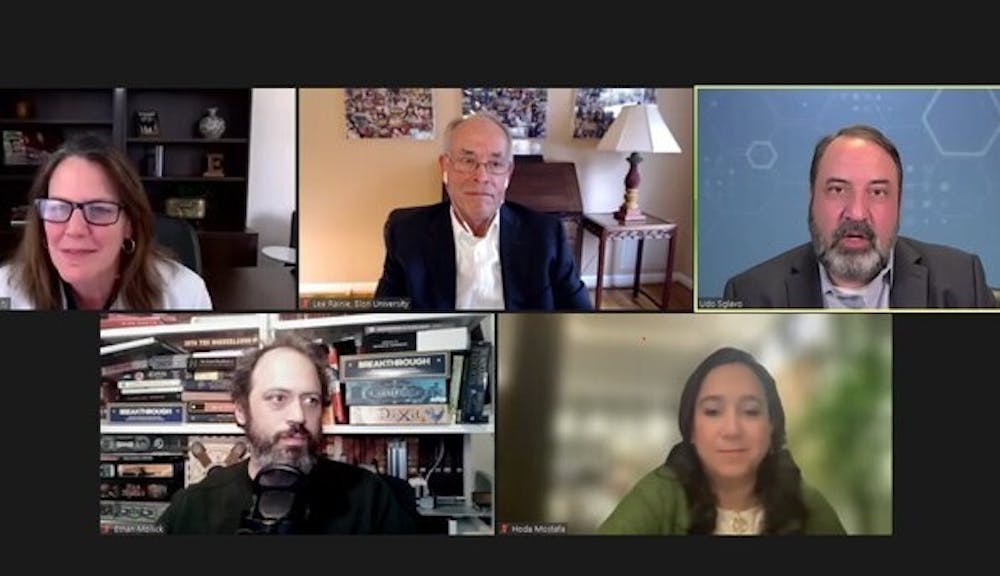Elon University President Connie Book and Elon’s Imagining the Digital Future Center hosted a webinar titled “AI in Academia: Transforming Teaching and Learning in the Digital Era” to discuss issues involving artificial intelligence in higher education.
Panelists included Lee Rainie, the director of the Imagining the Digital Future Center; Ethan Mollick, a faculty scholar at the University of Pennsylvania; Udo Sglavo, the Vice President of Applied AI and Modeling R&D at the SAS Institute; and Hoda Mostafa, the director of the Center for learning and teaching at American University in Cairo, Egypt.
“When ChatGPT came out, I noticed something really weird happened,” Mollick said. “My students stopped paying attention about 10 minutes in.”
Mollick introduced his undergraduate entrepreneurship class to ChatGPT a few days after its release. By the end of that class, one of his students built software using ChatGPT that would have otherwise taken him multiple days to develop.
“By Thursday of that week, everyone was using AI for something,” Mollick said.
AI growth since early 2023 has been monumental. ChatGPT’s user base rose from 1 million monthly visits in November 2022 to over 1 billion in May 2023. Gemini, the next generation of Google’s generative AI software, has already garnered over 330 million monthly users since its launch in February.
The panel discussed whether higher education can keep up with this growth.
“I think we can, but we have to change our mindset,” Mostafa said. “Something as central to faculty as plagiarism, even our understanding – our acceptance of what this means – within a hybrid way of thinking, is truly just a paradigm shift. And we need to work together to do that.”
Rainie said he believes that accepting this change will involve shifting how people think, as well as thoughts themselves.. He referenced Barry Chudakov – founder of Sertain Research – who refers to a “mind 2.0” shift, which is the idea that that thought won’t be housed in individual brains. Instead, it will be the product of a shared brain – one that is collective and externally accessed.
“AI will essentially be a partner now for intelligence and consciousness for lots of humans,” Rainie said.
The panel further discussed the possibility and need for AI regulation, both in and out of the classroom. Book referred to a quote from scholar Paul Virilio, who said that with the invention of the ship also comes the shipwreck.
“We now need to make sure that we’re prepared for the shipwrecks through good policy and regulation,” Book said.
SAS Analytics Software and Solutions is already looking at various regulatory efforts for its own AI framework, according to Sglavo. SAS has a division which monitors AI regulation around the world. Sglavo said that they’ve already looked into the EU’s catalog for AI regulation, and is consulting the White House on regulatory implications for the industry.
But Sglavo said regulation has the potential to impose unnecessary restrictions.
“We need to be careful not to go too far – because we are driven by fear,” Sglavo said. “This is now where higher education comes in to tear down the walls and say: ‘Look, this is impressive technology, but it’s still technology.’”


